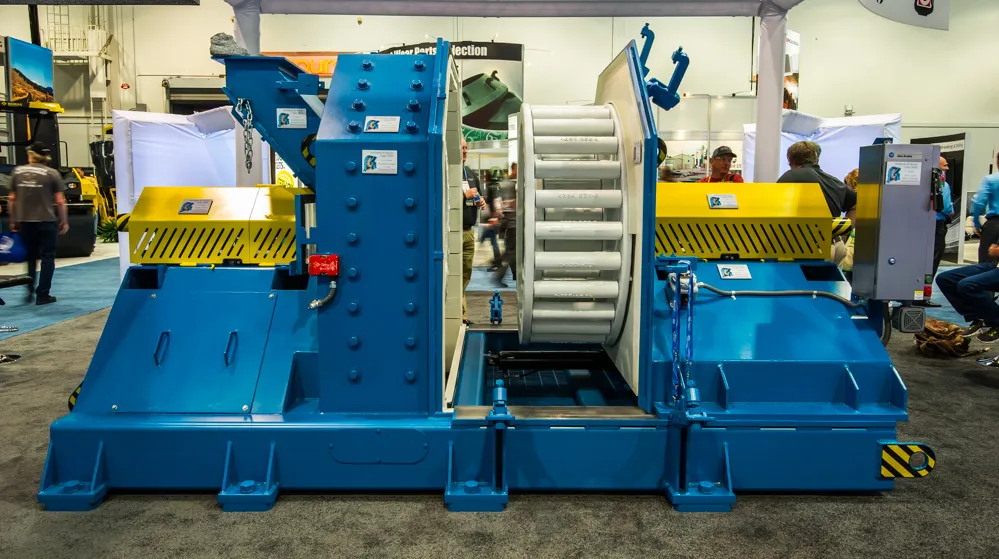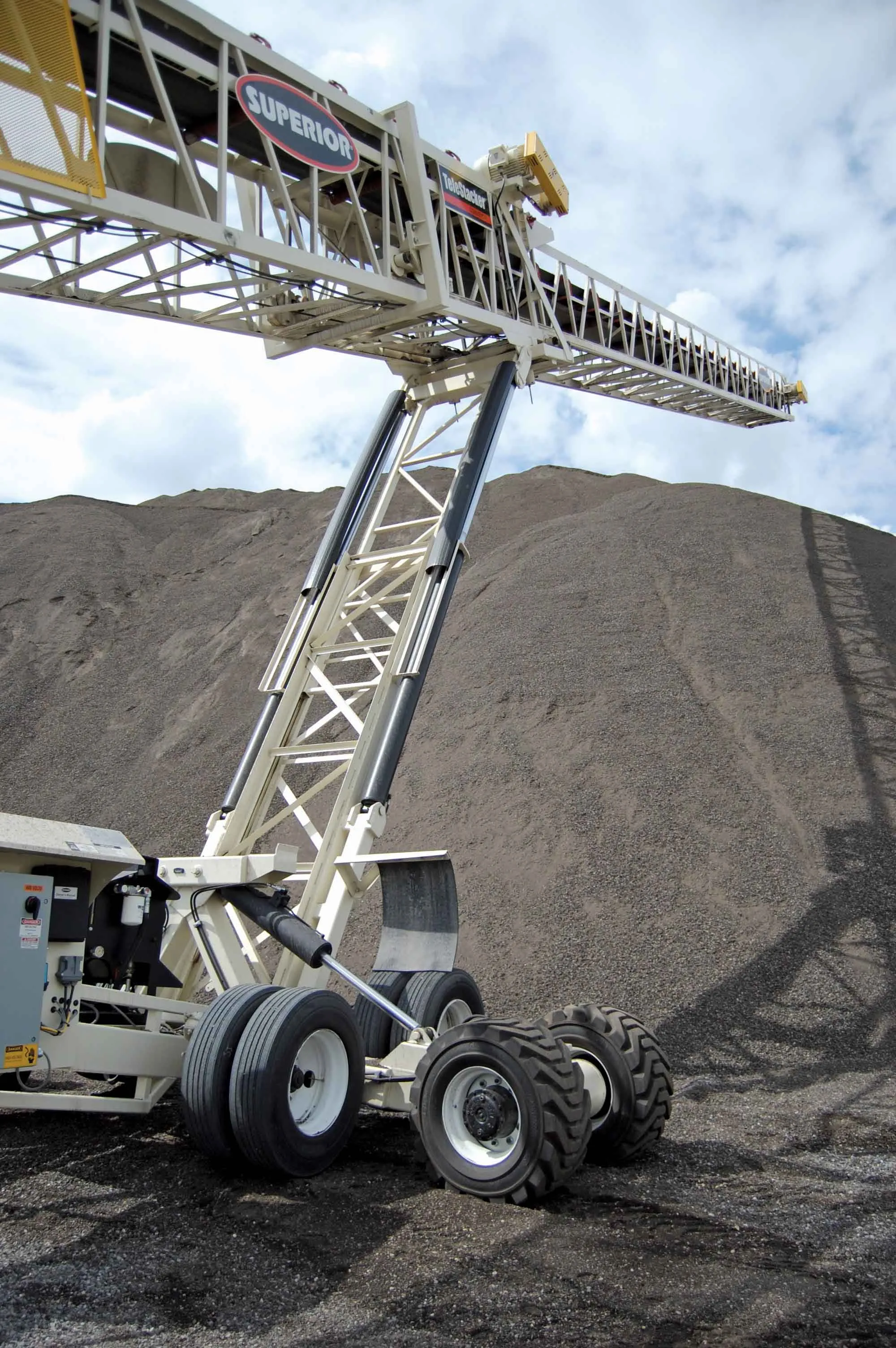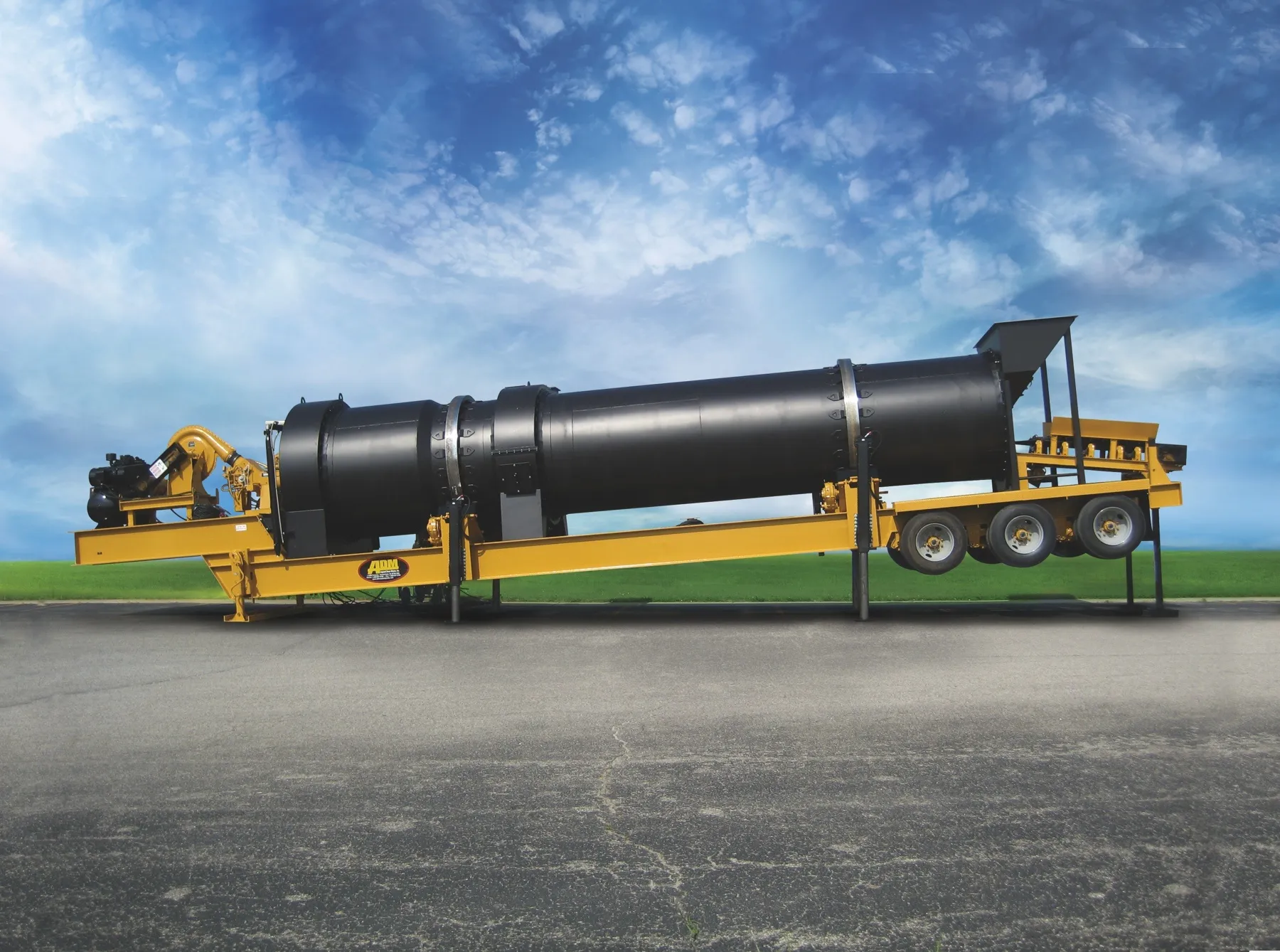
“It puts more energy into the materials than any other size-reducer in the market,” said Harold Coleman, marketing coordinator at Stedman, based in Aurora, Indiana. “There’s normally no need for secondary screening.”
That productivity is consistent across many materials. “It’s best at pulverizing, grinding, crushing and mixing abrasive and non-abrasive materials – wet, sticky or dry,” Coleman said.
The H-Series can handle up to 240 tons per hours and is reversible for extended wear life, the company said.
The H-Series Cage Mills feature a quick-open housing for efficient inspection and maintenance. Each H-Series impact mill housing can accommodate two-, four-, or six-row cage assemblies. This versatility is further enhanced by the capability to vary the number of pins in each row – and to adjust the rotational speed of each cage in relation to the others. The operator also can change the relative direction of the cage rotations.
For wet material applications, air cannons are mounted at the intake and discharge to help prevent build-up. A hydraulically-operated, quick-opening retractor provides rapid access to crushing components for inspection or changeout.
The quick-opening feature allows pre-scheduling of downtime for parts changeout based on regular inspections. Inspection requires about five minutes, complete changeout of wear components as little as one hour, or less.








